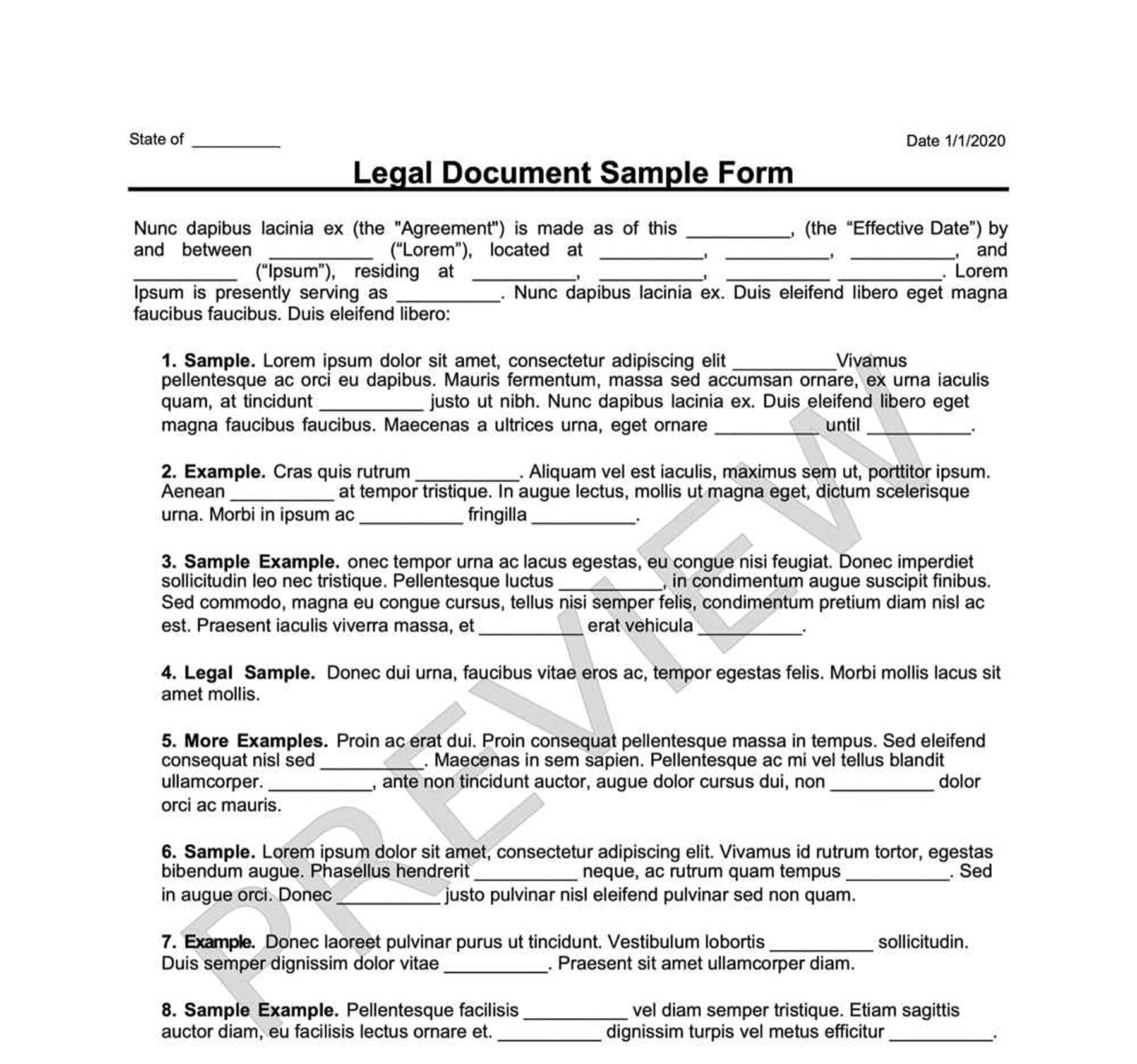Nonprofit Compensation Policy
A Nonprofit Compensation Policy is an optional policy regarding the compensation structure of an institution with tax-exempt status.

How it Works
Build your selected document.
Answer a few simple questions with step-by-step instructions.
Print & download forms instantly. Sign & make it legal.
What Is a Nonprofit Compensation Policy?
Just because people get on board with working for nonprofit organizations doesn’t mean they’re willing to work for free. There’s a difference between being a volunteer and a crucial member of a nonprofit organization.
Various employees and executives, in particular, are responsible for the performance of these mission-driven organizations. Based on their performance, experience, and other factors, they’re entitled to receive compensation for their work.
However, properly rewarding someone for their work in a nonprofit organization is easier said than done.
What Is a Nonprofit Compensation Policy?
The Nonprofit Compensation Policy is a document detailing the compensation structure inside a nonprofit organization for employees of all levels. It’s not a mandatory policy, but it can be beneficial in establishing clear rules for the distribution of monetary rewards and assets within an institution. It can also help ensure the organization and its members won’t run into issues with the IRS. Moreover, it provides transparency as to a nonprofit’s inner workings, which can help improve the public’s perception.
Other Names for a Nonprofit Compensation Policy
Depending on your state, you may also know a Nonprofit Compensation Policy as an:
- Executive Compensation Policy
- Employee Compensation Policy
Who Needs a Nonprofit Compensation Policy?
You may need a Nonprofit Compensation Policy if the board has approved a compensation structure and philosophy.
Another reason to draft a Nonprofit Compensation Policy is to reward key employees based on performance and contributions. In some cases, this document enables specific compensations, thereby helping an organization with employee retention.
Depending on how you draft it and whom it targets, a Nonprofit Compensation Policy can also be used for recruitment purposes, improve employees’ work-life balance, and even influence the public’s perception of the organization.
Why Use Swyft Forms for Your Nonprofit Compensation Policy
Customized for you, by you
Create your own documents by answering our easy-to-understand questionnaires to get precisely what you need out of your Nonprofit Compensation Policy.
Specific to Your Jurisdiction
Laws vary by location. Each document on Swyft Forms is customized for your state.
How to Create a Nonprofit Compensation Policy With Swyft Forms
Drafting and implementing a Nonprofit Compensation Policy can have severe legal and financial ramifications on the organization and its board members. Therefore, it’s essential to understand state and federal laws and IRS regulations regarding nonprofit organizations. This makes drafting a policy and determining what’s acceptable as compensation difficult without legal aid.
Let Swyft Forms help with our extensive library of attorney-vetted legal forms. The process is fast and easy. All you need to do is fill out our easy-to-understand questionnaire. Once complete, simply download your form as a PDF or Word document from your secure online account.
What Information Will I Need to Create My Nonprofit Compensation Policy?
To create your document, please provide:
- Organization: Name and contact information about the organization.
- Personal Information: Name, address, and other relevant information about the nonprofit executive or employee to be compensated.
- Description: A detailed description of the benefits and compensation.
- Experience: List information regarding the recipient’s performance, education, and experience in the industry.
- The Process: Detail how you determined the compensation package.
- Approval Date: The date when the board approved the compensation.
- Comparability Data: Outline data used to arrive at the specific compensation plan.
- Board Members: A list of board members present during the compensation and benefits discussion.
- Vote Results: Indicate how the board voted on the Nonprofit Compensation Policy.
Depending on your organization’s size, industry, and various state laws, you may request other information.
Nonprofit Compensation Policy Terms
- Nonprofit Organization: An institution, often mission-oriented, in service of the public or specific social causes
- Form 990: An IRS form containing fiscal information about nonprofits and other tax-exempt organizations
- Nonprofit Comparability: Verifiable information on compensation levels at similar nonprofit organizations for similar job functions
- Tax-Exempt: Transactions or assets not subject to taxation
- Board of Directors: A committee designated to make decisions regarding the activities and processes in a nonprofit organization
Nonprofit Compensation Policy Signing Requirements
While the Nonprofit Compensation Policy is a significant act, signing it doesn’t have to be witnessed and notarized. It’s enough for the board of directors and executives to sign the policy to enforce it.
What to Do With Your Nonprofit Compensation Policy
You should create multiple copies after receiving your Nonprofit Compensation Policy. Share it with the board members, keep a copy at headquarters, and submit it to the IRS and other authorities if federal, state, or county laws request the document.
Other Names for Nonprofit Compensation Policy
- Nonprofit Compensation Policy Form
- Nonprofit Compensation Policy Document
- Nonprofit Compensation Policy Agreement
- Nonprofit Compensation Policy Contract
- Nonprofit Compensation Policy Template
- Nonprofit Compensation Policy Checklist
Who Needs a Nonprofit Compensation Policy?
Why Use Swyft Forms for Your Nonprofit Compensation Policy
Customized for you, by you
Specific to Your Jurisdiction
Why choose Swyft Forms?
Create professional documents for thousands of purposes.
Make unlimited documents and revisions.
Our documents are vetted by lawyers and are applicable to all 50 states.
